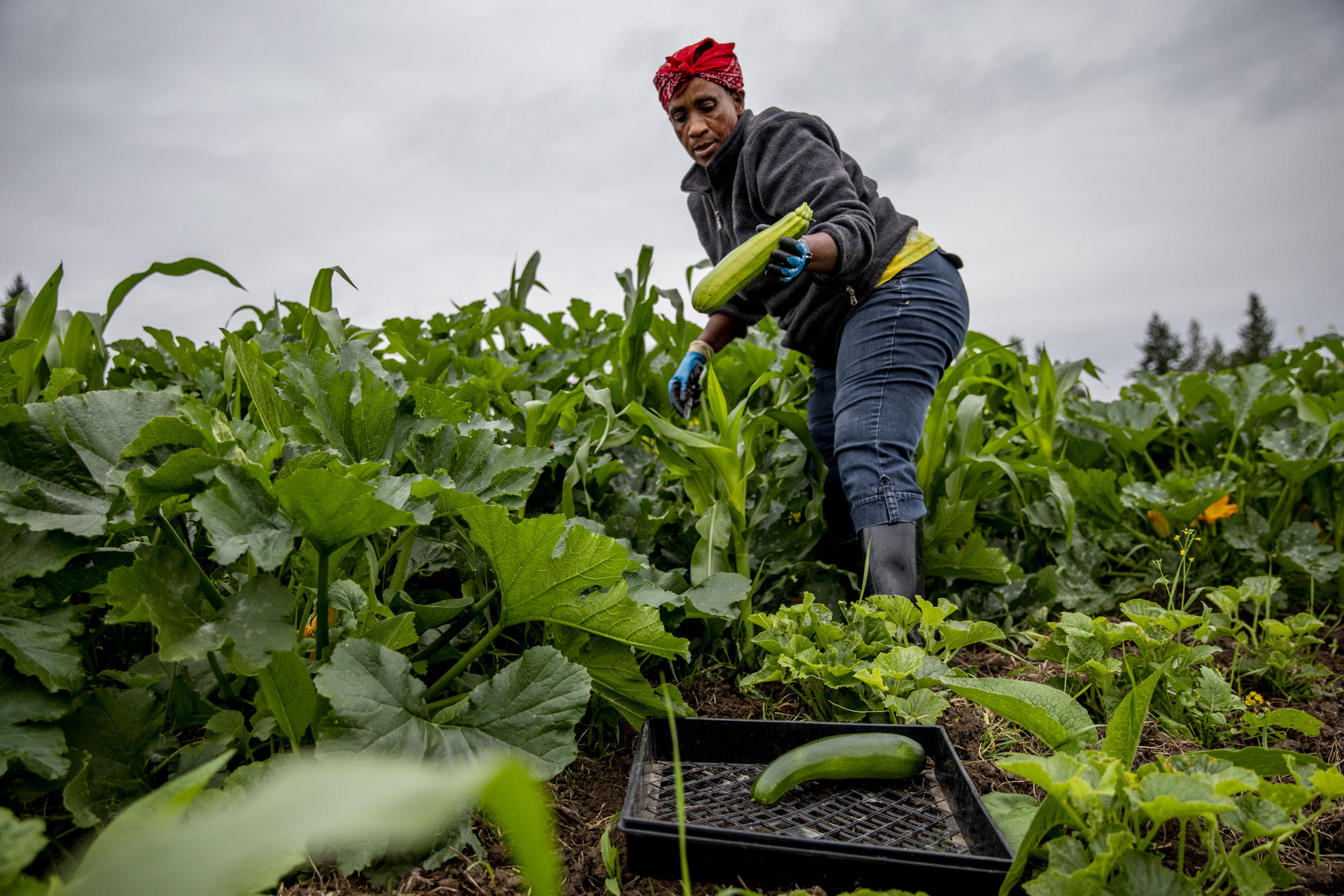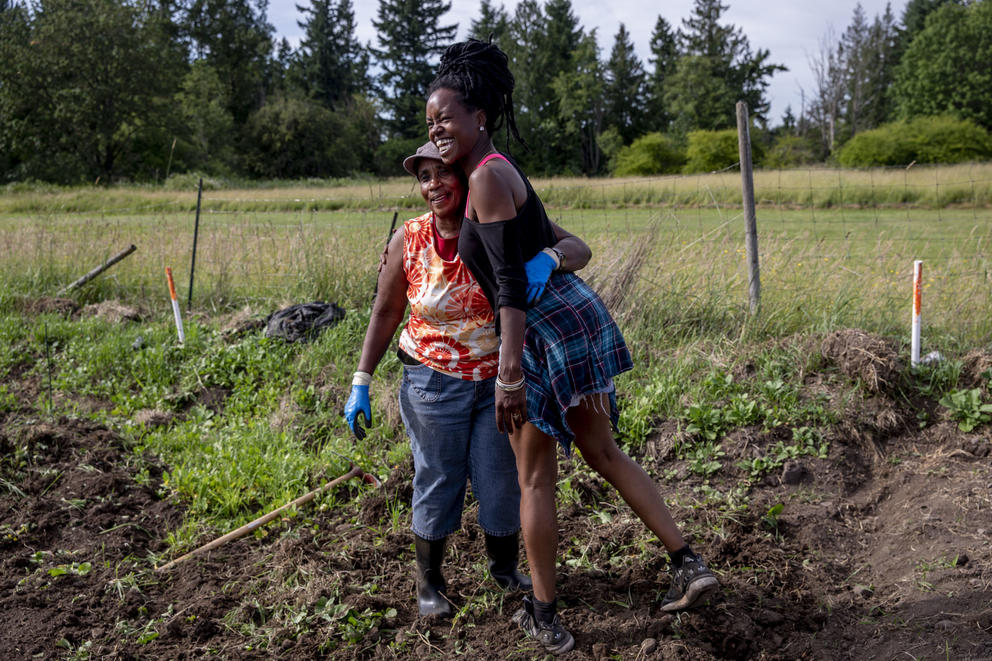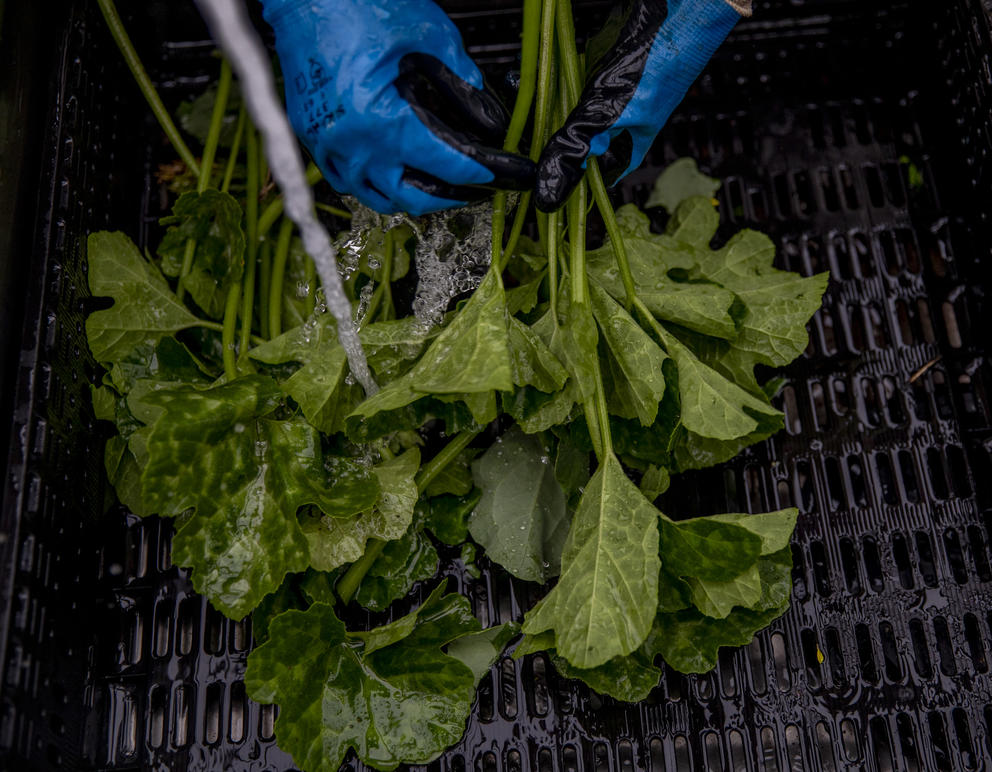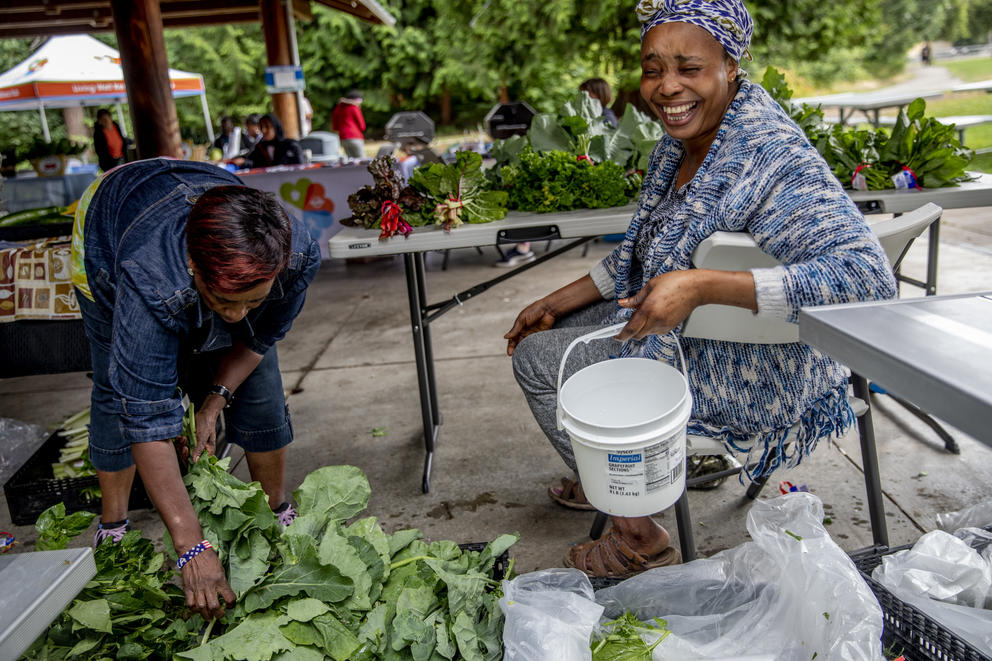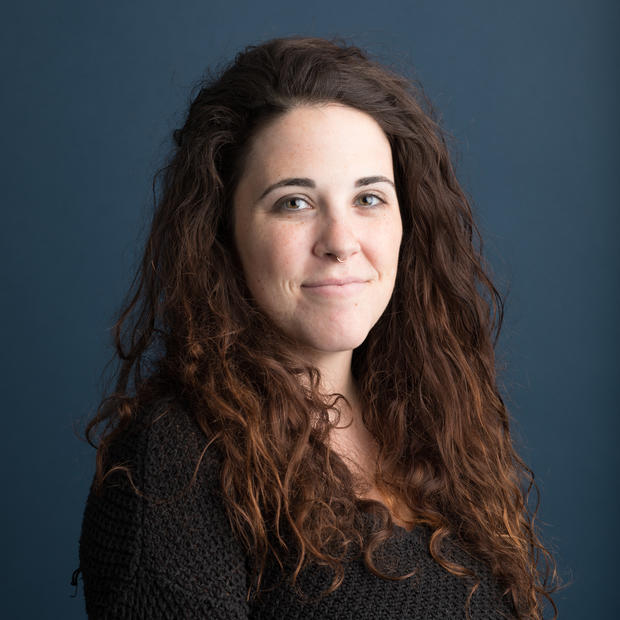It’s June and her garden in Auburn is bursting with life. A new crop of squash will come in next week and in two weeks, she knows her corn stalks will have grown tall. She plants the two close together: It’s better for their growth, and the squash vines choke out weeds and keep the dirt from drying up under the sun. Inside a greenhouse next door to the acre of land, she has planted managu, a Kenyan vegetable akin to collard greens.
Karanja grew up farming with her mother in Kenya. Everything they ate, she says, was grown and cared for by their own hands.
“If we grew potatoes, that’s what we ate; if we grew sweet chard, that’s what we ate,” she says. “I love to eat what I have seen grow — not what somebody else has grown, and I don’t know what they put [in it].”
She studied agriculture in college and became a researcher with Kenya’s National Seed Quality Control Service (now called the Kenya Plant Health Inspectorate Service). Checking on crops for a living, she spent her days caring for plots of land much bigger than the patch she farms now. In 2002 she came to the United States, settling at first in Massachusetts. It was much colder, and Karanja says it wasn’t much to her liking. Worse, she didn’t have land to farm.
“I planted tomatoes and small stuff like that,” she says.
She missed farming, but she didn’t know how to find access to arable land again. She definitely didn’t have the money to buy an area for herself. In the absence of farming, she started work as a caretaker. But when she moved to Washington eight years later, she says, her “eyes were opened.” She learned of Living Well Kent’s farmland through friends and quickly seized the chance to farm again.
A 2019 King County survey of immigrant and refugee farmers says that as of 2018, “There were over 200,000 immigrants and refugees from Southeast Asia and Africa, many of whom came from rural regions and left behind family farms.” The interest is there; the report found that 100% of those surveyed had farmed in the past for subsistence, and again, all surveyed wanted to farm in South King County, 89% of which were interested in farming commercially. But the survey also found that a variety of barriers are keeping these farmers from continuing their work here in the States.
Some of those were language barriers. Some surveyed expressed the need for more information in finding places to market their vegetables. But the biggest barrier for many was simply not having the money to lease or purchase farmland — and Richard Martin, the county’s agriculture, forestry and incentives program manager, says that they’re still figuring out how to help these communities find farming programs. Martin adds that it’s imperative that they do this now; not only does it benefit farmers wishing to return to their agrarian roots, but it also keeps farmland around King County in use.
Now Karanja spends many days a month at her patch of land in Living Well Kent’s community collaborative farmland. It’s where she feels happiest, whole, and she says that farming is “just like therapy to me.”
“It’s all free, so just bring yourself,” she says. She smiles for a second before taking up her pick and getting back to work, repeating the last part as the pick hits the earth, raking back another clump of weeds: “Just bring yourself.”
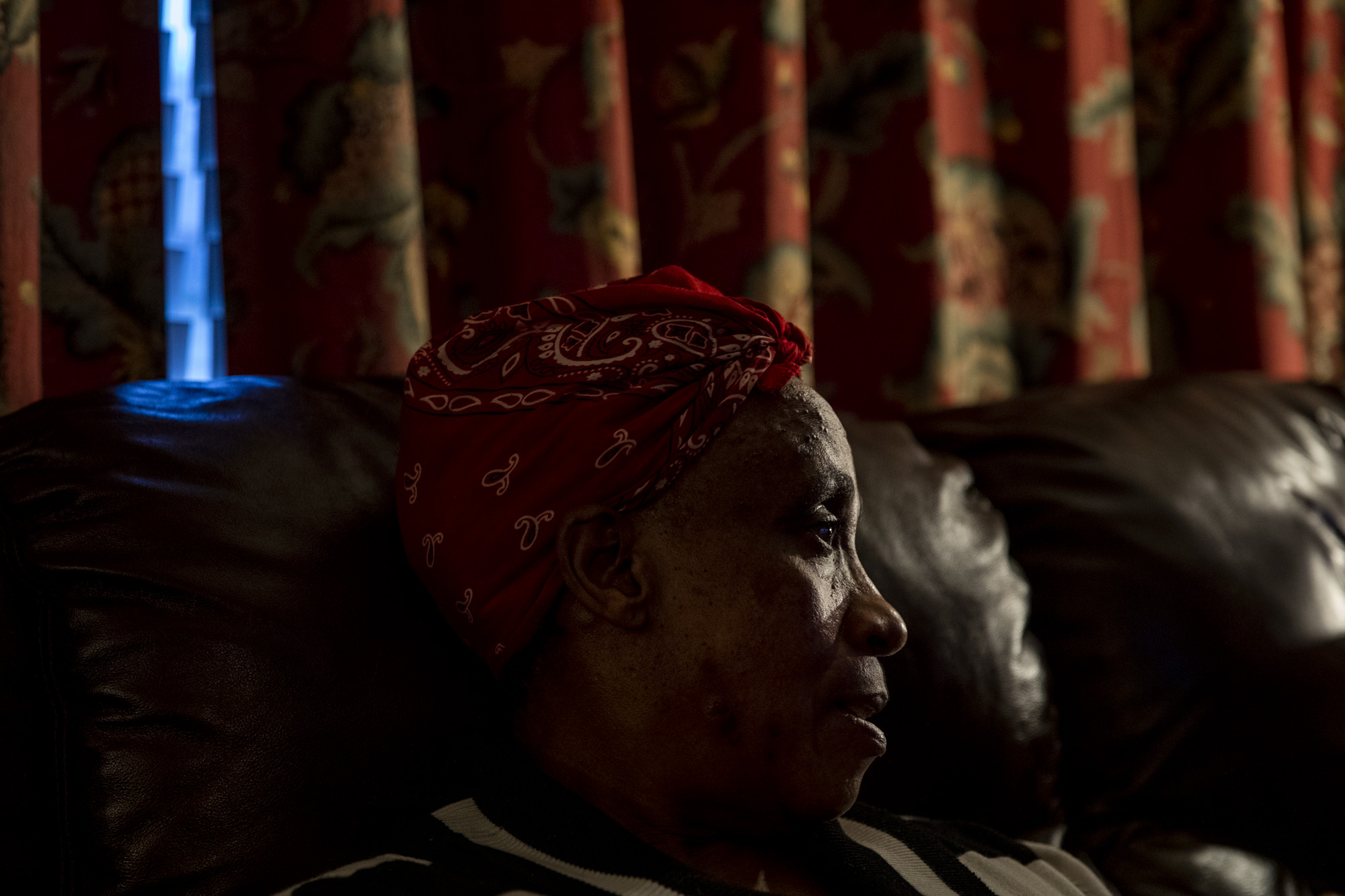
All over the country, farmland is shrinking. About 1.5 million acres of U.S. farmland are lost yearly, and as farmers age without successors to take up their work, the problem worsens. And since farmland is typically flat and drains well, it’s highly attractive to developers.
King County’s farmland acreage has stayed relatively stable for the past decade. The county’s Farmland Preservation Program began in 1979, helping large swaths of farmland survive encroaching development. But Martin says the problem extends beyond simply keeping the land.
“Unfortunately, prices for farmland continue to increase, especially for those farms that fall outside of Agricultural Production Districts, which further challenges new and beginning farmers looking to enter the business in King County,” Martin wrote in an email.
PCC Farmland Trust Executive Director Melissa Campbell says that farmland that’s not currently being worked is the most vulnerable to be developed or used for non-agricultural purposes. But getting people to purchase and use it can be difficult if the land is too expensive — especially for refugee and immigrant farmers.
Veronica Karanja washes freshly harvested kahurura, a traditional Kenyan vegetable, before taking it to a community farmers market to sell on July 6, 2019. She grows several traditional Kenyan vegetables in her garden that aren’t found in nearby grocery stores. “I just want my community to eat good food,” she says.
“Here in Washington, and particularly western Washington, we know that land is increasingly out of reach for farmers who want to buy that land — on average, a piece of property can be anywhere from $15,000 an acre and up,” she says. “Especially if you’re looking at King County, that number can be higher.”
Living Well Kent started in 2014 as Kent’s second farmers market, and the only one to accept SNAP and food vouchers. They saw the desire for farmland among residents, and shortly after, the collaborative received land in Kent as a donation from Washington State University. It’d once been used for the college’s agricultural department, until the teacher running the program retired, leaving it unused for a decade. Now it invites immigrant farmers like Karanja to farm for free and sell their products at their farmers market.
“Our project was… match[ing] farmers and the land that's available together to make sure that this land is fertile,” Living Well Kent Executive Director Shamso Issak says. She says boosting local farmland also helps all community members have more equitable access to healthy food.
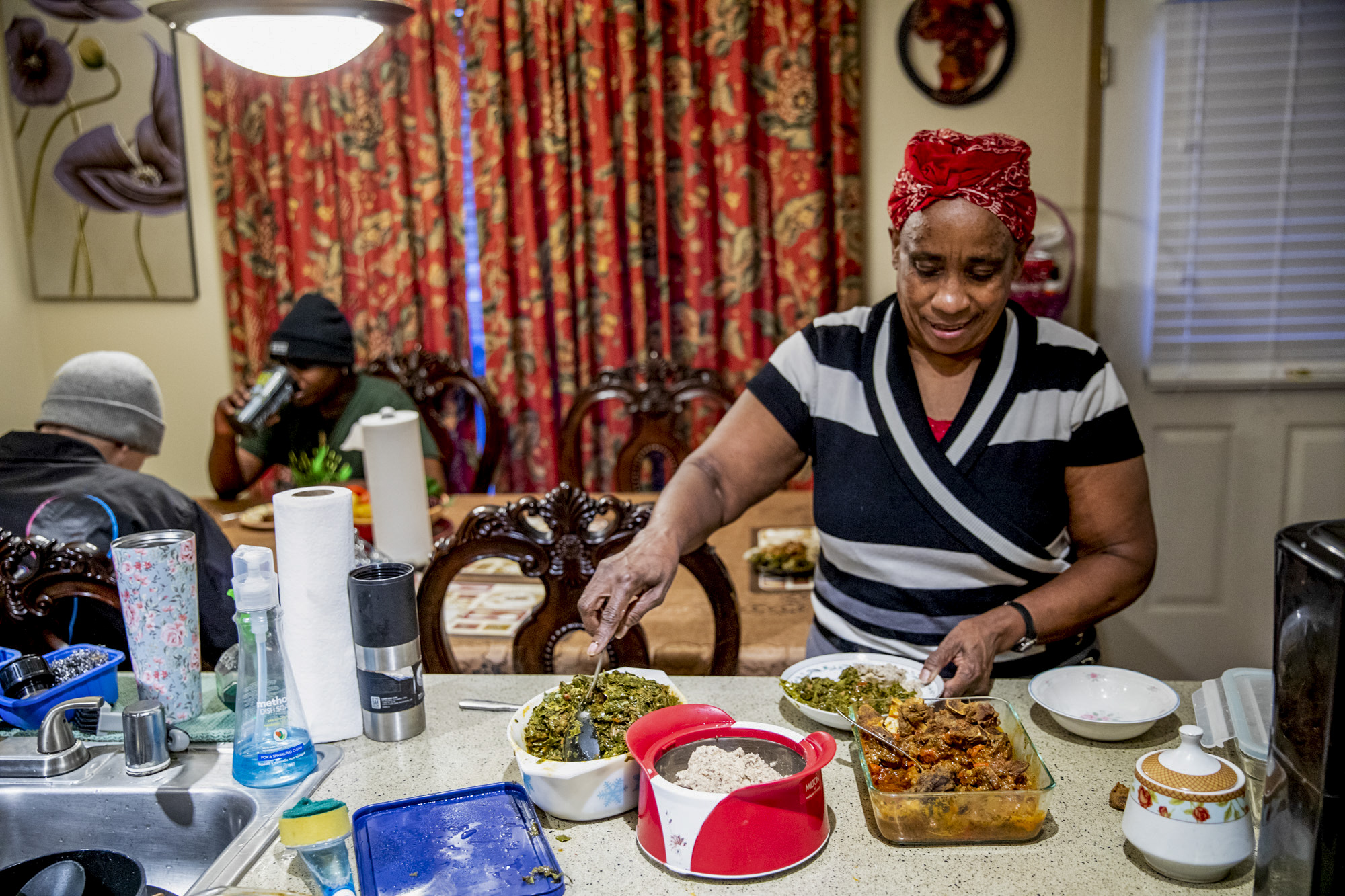
Twenty-five farmers split an acre of land and 22,000 square feet of greenhouse space. It’s crowded, and Issak hopes to get funding to expand soon. Land remains expensive: The average cost of an acre of farmland in Washington was $13,000 in January 2019.
“We have more farmers now and less land available, to be honest,” Issak says. “But then if you drive around, you will see a lot of farmland that no one is using.”
Since their 2019 survey, King County has begun to seek ways to connect immigrant and refugee farmers to land. While Martin says that plenty of work remains, they’re working with organizations like Tilth Alliance and PCC Farmland Trust to see how they can support them.
“We’re working on first figuring out what’s out there,” Martin says. “And how do we make it accessible.”
Karanja’s dreams go beyond the acre in Auburn. She says she’d like to farm full-time again rather than split her time between crops and her primary job as a caretaker. She also wants to start a business: She created a recipe for ugali, a doughy cornmeal porridge often eaten in Kenya. Hers mixes flax and chia seeds, coconut flour and other ingredients into the cornmeal to make it healthier.
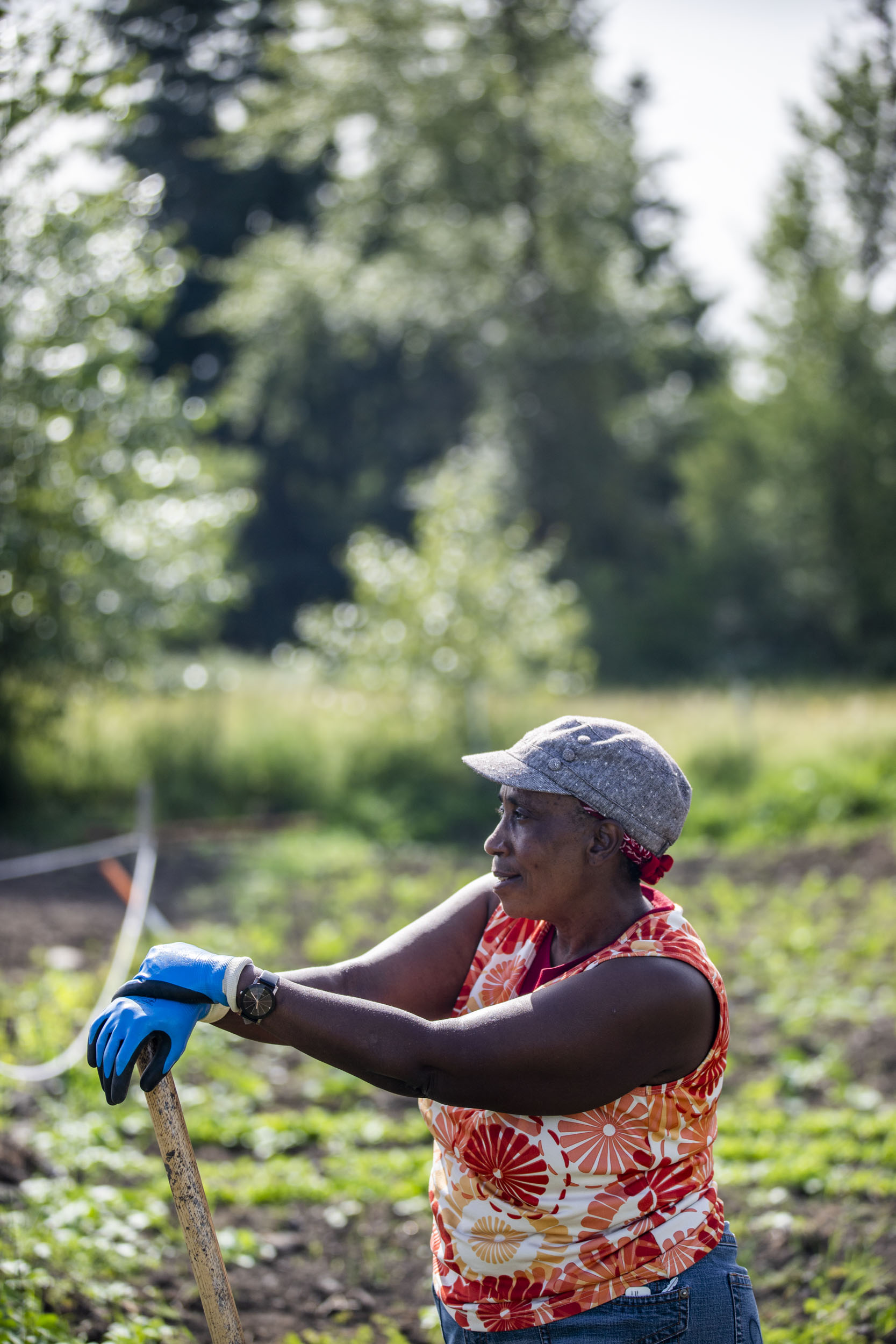
For family dinners, which can include her husband, kids, grandchildren and anyone else in the house, she serves ugali with dishes of lamb and a sauteed mixture of greens grown in her garden: sweet chard, collard greens and managu.
At the farmers market this year, she wants to sell her signature family-dinner meal as a whole plate. Already, she says, her managu is one of the fastest vegetables to sell; most of her buyers are Kenyan. Issak says that this is a typical strategy: Many farmers sell their products by word-of-mouth through friends and friends of friends.
“Our market is more than a farmers market,” Issak says. “It's [a] community gathering, too. That's how people stay healthy, eating things that they're familiar with.”
It’s taken Karanja years to get to a place where she can farm again, find community with other farmers and start thinking about how to make her life’s passion support her life in the States.
“I’m so happy that I’m able to plant my own food,” she says. “I can eat fresh food, organic food here, and I can also supply to other people who aren’t able to farm. They know that Veronica is growing this, and they know that it’s good.”
Veronica Karanja, left and Fitina John of Auburn laugh together as they help each other bundle their vegetables at a community farmers market in Kent on July 6, 2019. The pair had just met that day at the Living Well Kent farm, where they both grow crops, and learned they both speak Swahili. They spent the morning speaking in their shared language and laughing as they prepared their crops to sell. “We are friends now,” Karanja says. “It is much better to help someone than do it alone.”
The support provided for this series was arranged by an internal department separate from the Crosscut editorial team, and therefore presented no influence with the information presented in the stories. Find more information on Crosscut's policy on editorial independence here.

